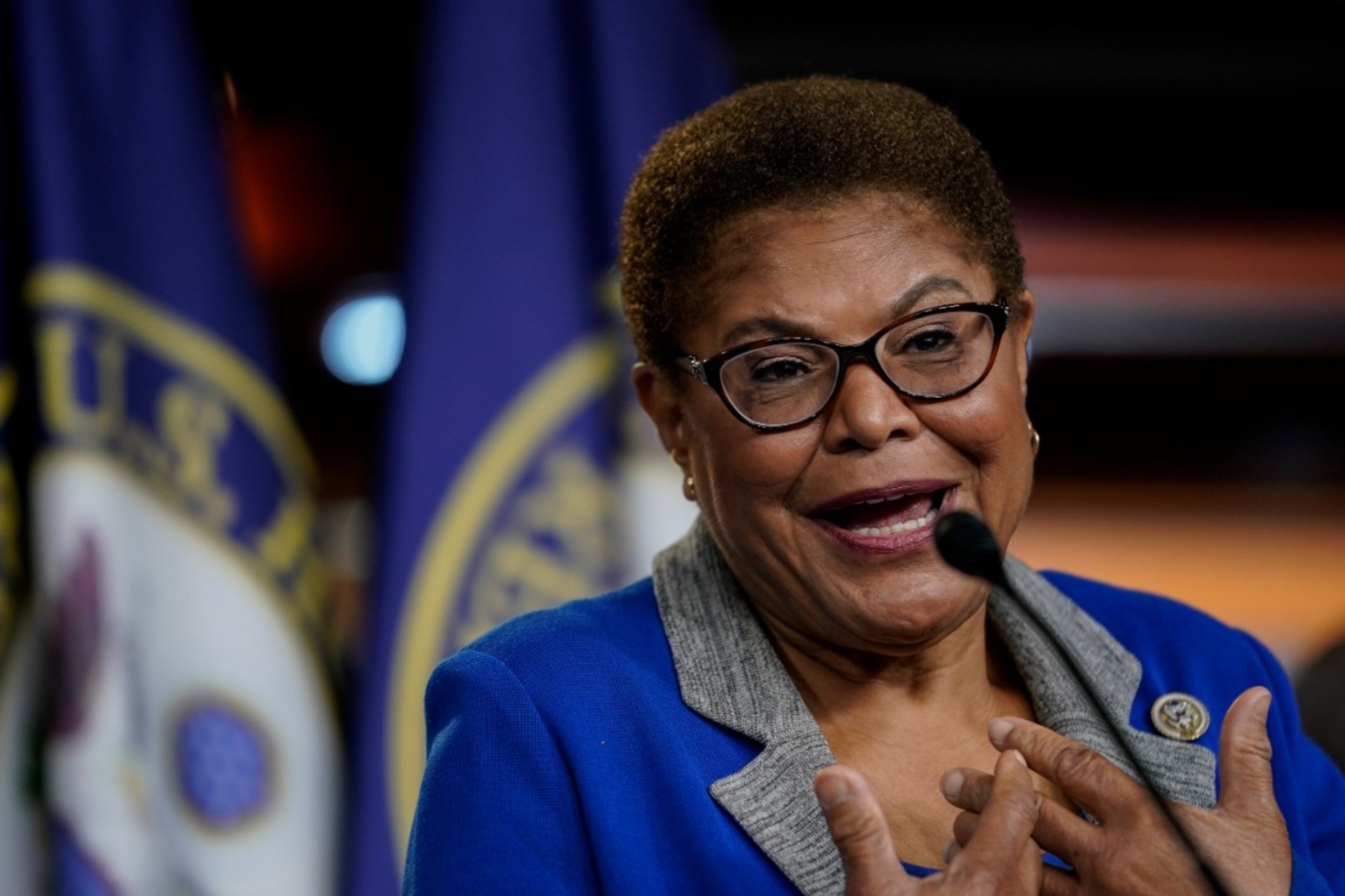

By David Greenwald
Los Angeles, CA – In 2014, Naomi Murakawa wrote the book, How Liberals Built Prison America. The book challenges the traditional understanding “racialized carceral expansion as the outcome of a conservative backlash.” Instead, Murakawa argues that it was those on the left and the right who are responsible for the buildup of the nation’s prison population. In fact, she argues that, for liberals, law and order was a “centerpiece of pro-civil rights agendas.”
I’m reminded of this now as we watched San Francisco Mayor London Breed pushing for increased policing in the Tenderloin, and now a letter by Karen Bass, the liberal former legislative leader who had become a hero to many on the left, has now done likewise in LA as she runs for mayor.
Bass argues that “people don’t feel safe today.”
It wasn’t long ago that Bass was touted as a potential Vice-Presidential candidate for Joe Biden. Ultimately, Biden went with California Senator and former San Francisco DA Kamala Harris. but the fact that Bass appeared on the shortlist demonstrated her potential standing as a progressive woman of color.
But like Breed, Bass is now quickly moving to distance herself from the criminal justice reform movement—or perhaps what we might call the decarceral left.
Her letter leaves potential supporters in the lurch.
“Whether you’ve had your car broken into, your backpack stolen, your property damaged — or you’ve seen news coverage of home robberies, or violent assaults — more and more Angelenos I speak with tell me crime has touched them personally, and they feel scared,” Bass writes.
Her answer to this problem harkens back to the 80s and 90s: more cops, moving 250 LAPD officers out of desk jobs and onto patrols.
It’s a modest proposal for sure. But, given who made it, it is a powerful message that like Mayor Breed gets, played up by Fox News and the right for all it’s worth.
“All Angelenos deserve to feel safe in their neighborhoods,” Bass said. “I know that can only happen by throwing out the old, failed approach of the status quo – which is why my community safety plan starts with a focus on effective and responsive policing, preventing homicides, and getting guns off our streets.”
To be fair, for her it’s not a pure turn to the bad old days.
She said, “We’ve tried to arrest our way out of a crime crisis before. It didn’t work.”
Instead, she is trying to find a happy medium.
She argues, “We have to allow our officers to actually focus on fighting crime by using response teams that include mental health, homeless outreach and other specialists who can respond to people in distress.”
Bass adds, “When someone commits a crime, they must be held fully accountable. And after they serve their time, they need access to resources to fully rehabilitate and successfully re-enter society: employment opportunities, education, and housing.”
Unlike in 1994, however, progressives are not about to cede this ground.
For example, Hamid Khan, a coordinator with the Stop LAPD Spying Coalition, criticized the plan, arguing that every dollar spent on police is a dollar that’s not available for much needed social services.
He called the proposal “disheartening and disappointing” and said, “It’s just recycled stuff that we have seen before.”
Melina Abdullah argued it shows that Bass is being “pushed to the right by her opponents and her potential opponents.” Bass is distancing herself, Abdullah said, from “those of us who’ve been doing progressive justice work over the last several decades.
“I don’t think it’s either visionary or a winning strategy,” she said.
Back in June 2020, Bass told the Washington Post that the phrase “defund police” was “probably one of the worst slogans ever.”
She’s not wrong on that point, but until we put money into schools, job training, mental health, and other social services we are likely to continue to see the cycle of poverty to policing. Moreover, if the reaction from many on the left is to resort back to more cops every time the going gets tough, we will never break out of the carceral state.
As long as we spend almost six figures a year to lock someone in a cage, it is going to be hard to put the resources needed to help people to avoid the carceral system altogether.

